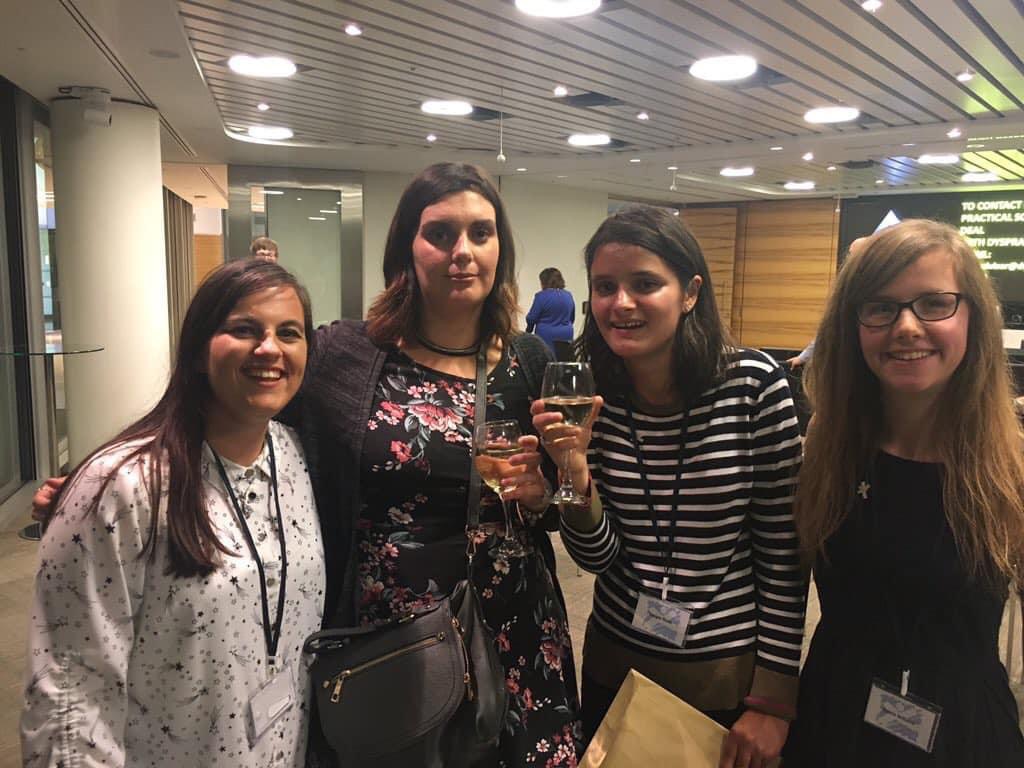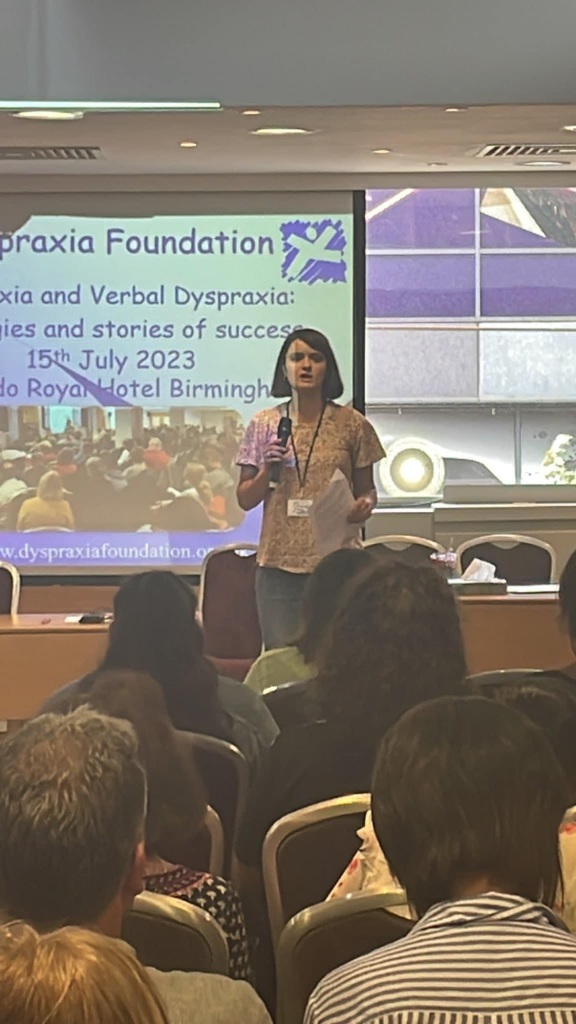Stepping into the bustling conference at Norton Rose Fulbright in June 2018, a global law firm in central London, was daunting. I felt a surge of anticipation mixed with a tinge of nervousness, as it was not only my first time attending a national conference and networking with other delegates, but it also marked a poignant moment of embracing my difficulties. Little did I know, but it would be a moment that would change my life forever. As I navigated through the sea of attendees at different talks and groups, I couldn’t help but marvel at the sense of unity that filled the air. Whether it was workshops on coping strategies, employment support or education, the charity empowered me to take control of my life and pursue my goals. It gave me the tools I needed to navigate the world with confidence and resilience from that day onwards, which was incredibly liberating.

Little did I know, over the course of that day and many months and years later, I would experience a transformation that would shape the trajectory of my journey with dyspraxia and leave an indelible mark on my soul.
As I write this very unexpected and rushed blog post, just an hour or so after hearing the announcement via email and social media, a heavy feeling settles in my chest as I don’t quite know where to begin but concurrently I feel the need to express how I feel. It is a mixture of sadness, nostalgia, and gratitude. The shocking news of The Dyspraxia Foundation closing its doors has hit me hard. For years, this charity has been more than just an organisation; it has been a lifeline, a sanctuary, and a beacon of hope for me and countless others navigating life with dyspraxia, in some very dark moments.
One of the most profound aspects of my journey with The Dyspraxia Foundation has been the sense of belonging it provided. In a world where I have often been misunderstood and underestimated, and regularly felt out of place like a misfit on the margins of society, this community has welcomed me with open arms. Through the online facebook support group in my early twenties, and many more social events that followed that first conference, I found others who shared similar experiences and understood the challenges I faced, accepting me for who I was. It was the only place where I didn’t have to explain myself because everyone just got it.
Being part of The Dyspraxia Foundation wasn’t just about finding people who understood me; it was about finding my tribe. These were individuals who didn’t see my differences as weaknesses but as strengths. Together, we celebrated our victories, big and small, and lifted each other up during tough times. It was a space free from judgement where I could be unapologetically myself. I found solidarity; a unity I had never experienced before.

As a voluntary joint Local Coordinator for the West Midlands regional group, I found myself thrust into a role that demanded leadership, empathy, and resilience. Serving as a bridge between the organisation and the local dyspraxia community, I took on the joint responsibility of organising support groups, events, and workshops aimed at providing resources and fostering a sense of belonging for individuals and their families like myself and mine. In this role, I discovered a newfound confidence in my ability to make a tangible difference in the lives of others. The trust placed in me by both the charity and the community empowered me to step outside of my comfort zone by talking to a range of individuals and public speaking, take initiative, and advocate for the needs of those who often felt overlooked or misunderstood.

Similarly, my role as one of the first of three national Youth Champions provided me with a platform to amplify the voices of young people living with dyspraxia. As part of a team dedicated to addressing the unique challenges faced by young people, I had the opportunity to collaborate on initiatives aimed at improving social inclusion and life outcomes for individuals with dyspraxia. Being entrusted with this responsibility not only deepened my understanding of advocacy and activism but also instilled in me a sense of purpose and determination to effect positive change.
Through both of these roles, I developed invaluable skills in communication, organisation, and advocacy that transcended beyond the confines of the charity. The confidence gained from leading and representing the dyspraxic community extended into various aspects of my life, from academic pursuits at university to personal relationships. I learned to embrace my strengths, confront my weaknesses, and navigate challenges with resilience.

Moreover, the relationships forged and experiences gained through my involvement with The Dyspraxia Foundation has enriched my life in ways I could have never have imagined. Lifelong friendships have been created, meaning trips out and holidays with friends gained. Parents have told me I have given them hope, which instilled in me a sense of purpose and meaning. In essence, my roles as a voluntary local coordinator and youth representative not only empowered me to make a difference in the lives of others but also transformed me into a more confident, compassionate, and resilient individual.

There is a stark realisation that now sets our community apart from others; there is no longer a national charity solely dedicated to dyspraxia. Unlike other neurodivergent conditions that have prominent organisations with strong voices championing their cause, dyspraxia now once again lacks a unified voice on the national front. Without a dedicated national charity, the resources, support networks, and advocacy efforts that had been instrumental in empowering individuals like myself are suddenly at risk of being lost. The absence of a centralised organisation means that awareness raising, providing support, and driving change falls largely on the shoulders of local communities and individuals.
My thoughts are with those who have lost their jobs, all those involved in the charity in whatever capacity and to every other individual like myself who regarded the foundation as a big and important part of their life.

Sorry to hear that the org has closed
Its long been clear how you loved it & how much you felt it has helped you.
I trust that the stuff you gained from it can help you find a new fruitful path.
I’m sitting in a dole office writting this & should have used the term ‘transferable skills’ ,…, probably. ??
Good luck, you seem resourceful & energetic enough that I feel sure you’ll find a way forward
LikeLike